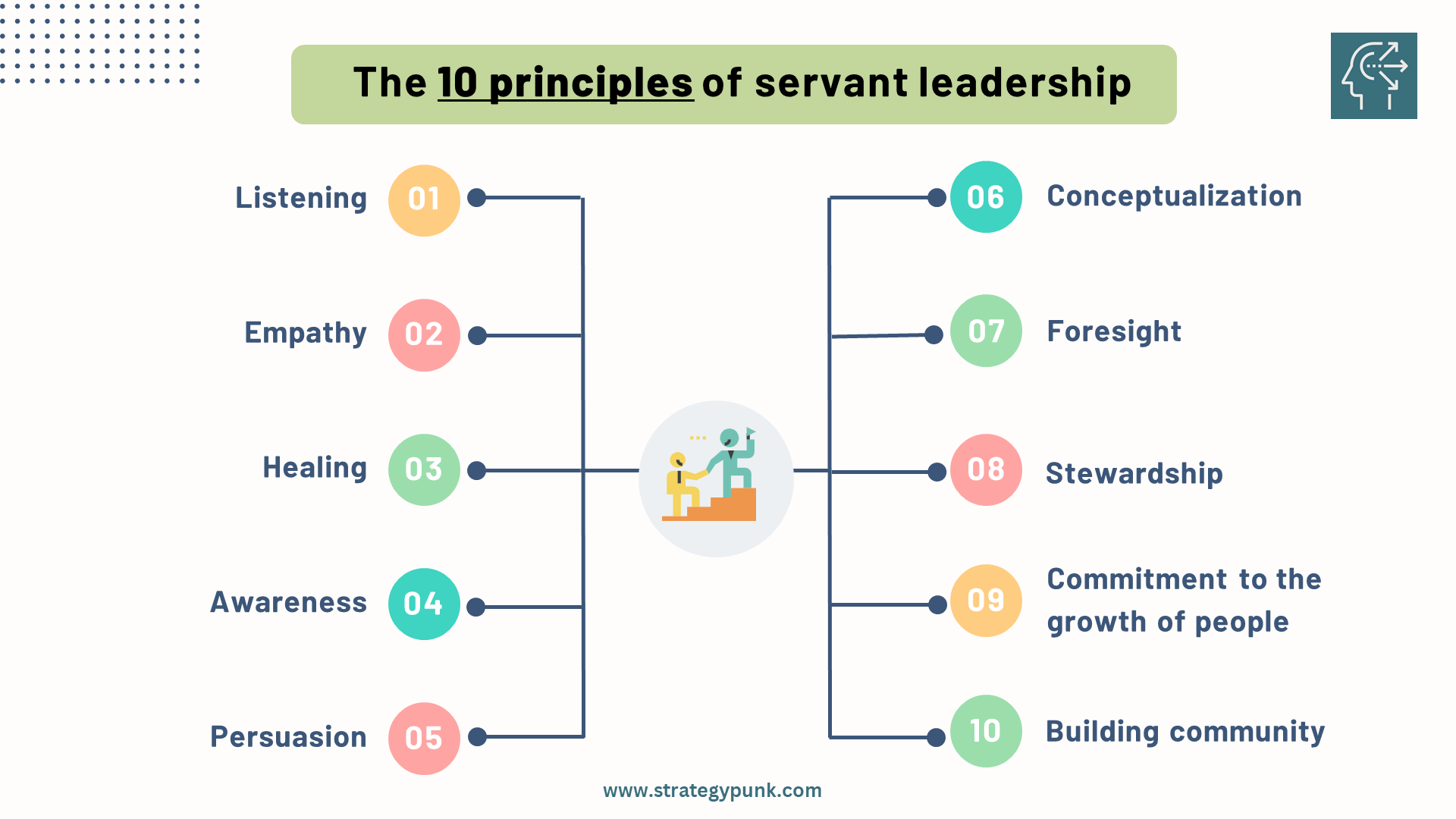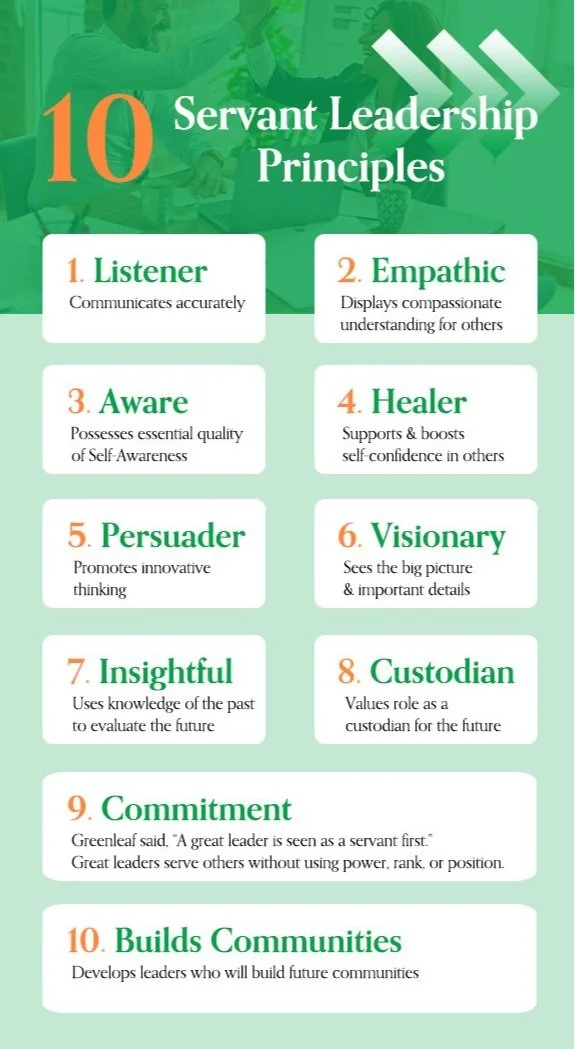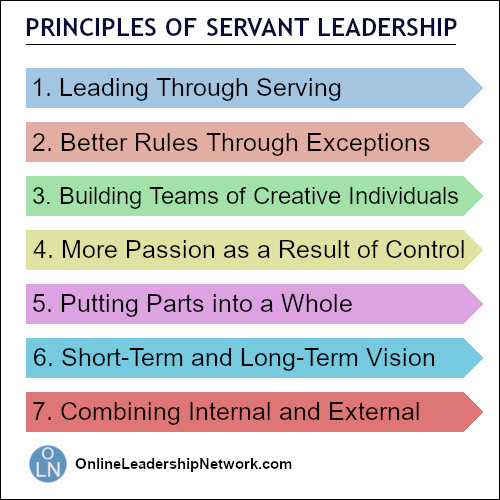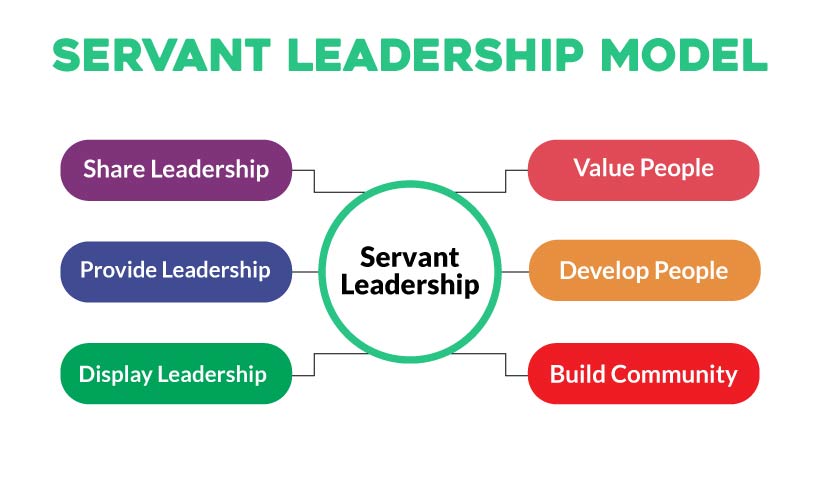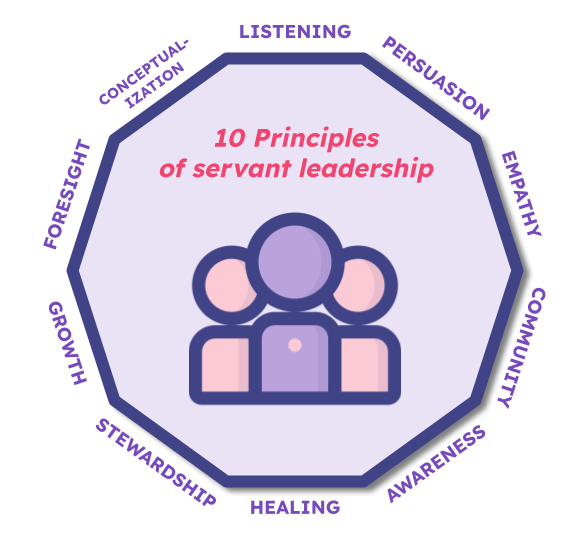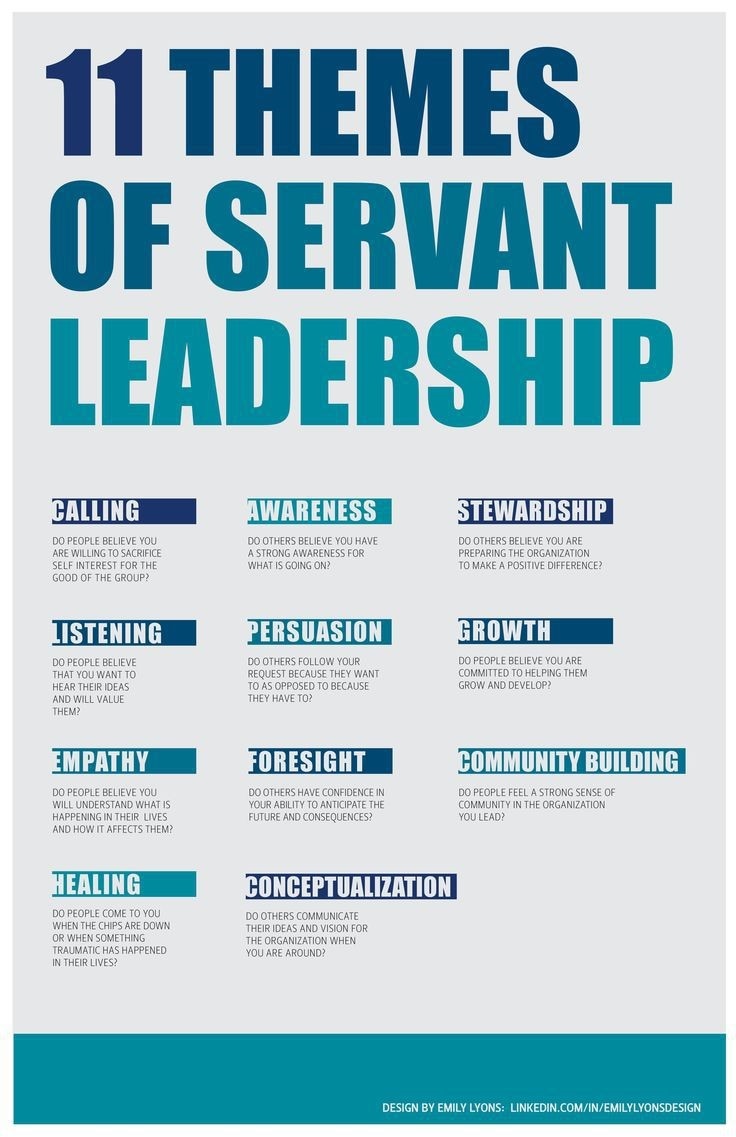What Are The Principles Of Servant Leadership
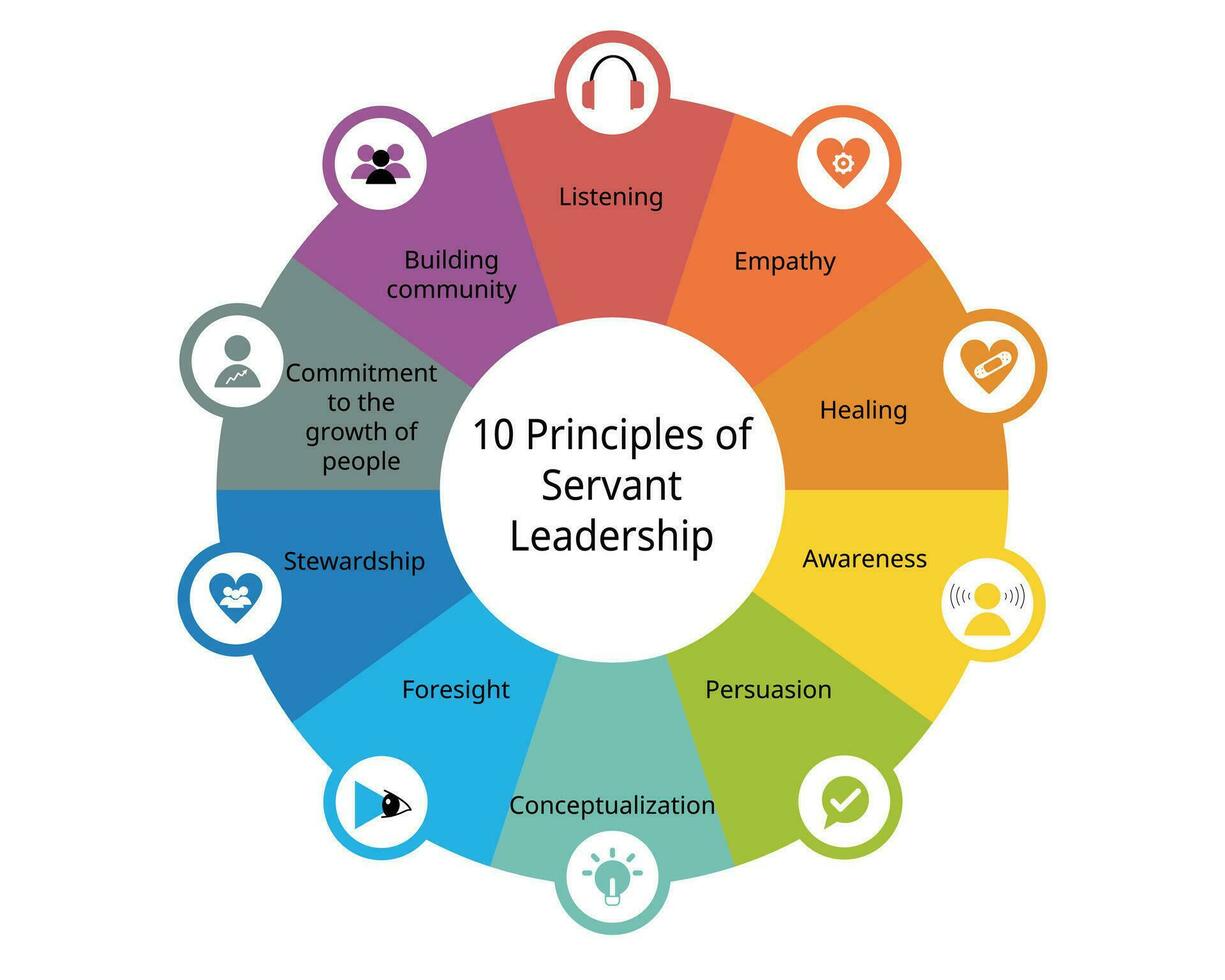
In a world increasingly focused on bottom lines and hierarchical structures, a different style of leadership is gaining traction: servant leadership. This philosophy, prioritizing the growth and well-being of individuals within an organization, challenges traditional top-down models.
At its core, servant leadership emphasizes serving others before leading. The fundamental question servant leaders ask themselves is: How can I help my team succeed?
The Foundation of Servant Leadership
The concept of servant leadership was first articulated by Robert K. Greenleaf in his 1970 essay, "The Servant as Leader." Greenleaf posited that the best leaders are first and foremost servants, leading by empowering and uplifting those around them.
This approach is not about weakness or a lack of authority. Instead, it's about leveraging influence to foster a positive and productive environment. It prioritizes building trust and creating a sense of shared purpose.
Key Principles of Servant Leadership
Several core principles define servant leadership. These principles provide a framework for leaders seeking to adopt this style.
Listening: Servant leaders prioritize deeply understanding their team members' perspectives. They actively listen to concerns, ideas, and feedback without judgment.
Empathy: Putting themselves in others' shoes is crucial. Empathy allows servant leaders to understand and address the needs and feelings of their team members.
Healing: Servant leaders focus on fostering personal and professional well-being. They create an environment that supports healing and growth, addressing any conflicts or issues constructively.
Awareness: A strong awareness of ethical and societal implications is vital. Servant leaders are conscious of their impact and strive to make responsible decisions.
Persuasion: Rather than relying on authority, servant leaders persuade others through influence and collaboration. They build consensus and inspire action.
Conceptualization: Servant leaders think beyond day-to-day tasks. They encourage a long-term, visionary approach to problem-solving and strategic planning.
Foresight: Learning from the past and anticipating future trends is crucial. Foresight allows servant leaders to make informed decisions and guide their teams effectively.
Stewardship: Servant leaders take responsibility for the well-being of their organization and its resources. They act as stewards, ensuring sustainability and ethical practices.
Commitment to the Growth of People: Fostering the personal and professional development of each team member is paramount. Servant leaders invest in training, mentoring, and opportunities for growth.
Building Community: Creating a strong sense of community within the organization is essential. Servant leaders cultivate relationships and promote collaboration.
The Impact and Applications
Servant leadership can have a significant impact on organizations. Research suggests it can lead to increased employee engagement, higher productivity, and improved customer satisfaction.
This style can also foster a more positive and ethical work environment. A company filled with servant leaders creates an atmosphere of trust and mutual respect.
Servant leadership can be applied in various sectors. It is relevant in business, education, healthcare, and non-profit organizations.
Challenges and Considerations
Implementing servant leadership requires a shift in mindset. It can be challenging to break away from traditional hierarchical structures and embrace a more collaborative approach.
It's essential to acknowledge that servant leadership is not a one-size-fits-all solution. The effectiveness of this style may depend on the specific context and organizational culture.
Leaders must genuinely embrace the principles of servant leadership. A superficial implementation without genuine commitment can be counterproductive.
Conclusion
Servant leadership offers a compelling alternative to traditional leadership models. By prioritizing the needs and growth of others, servant leaders can build stronger, more engaged, and ultimately more successful organizations.
While it requires a significant shift in mindset and a genuine commitment to its principles, the potential benefits of servant leadership make it a worthwhile pursuit for those seeking to create a more positive and impactful work environment. It represents a commitment to people, fostering an atmosphere where they can thrive and contribute their best.

